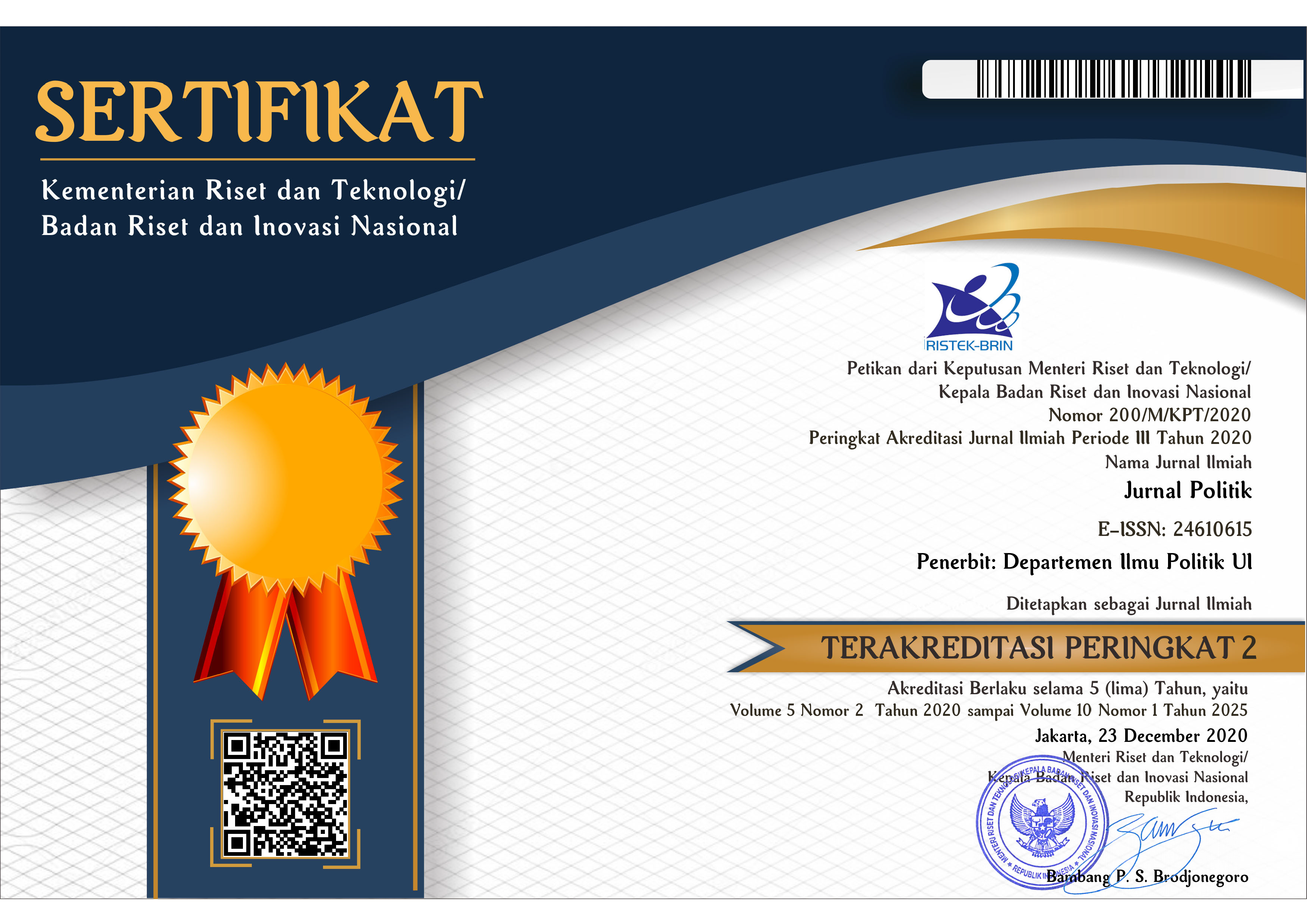Abstract
This study discusses the role of political actors in Egypt during the transition period leading to the failure of democratic transition in the country. These actors are: 1) the military, (SCAF (Supreme Council of Armed Forces)); 2) the Islamic groups, including the Muslim Brotherhood and Salafi groups; 3) the elites of the old regime (status quo), that are the remnants of the Mubarak regime either still in the political structure or been eliminated; and 4) the secular groups, including elites and civil society activists emerged since the anti-Mubarak revolution. The interaction of these actors was analyzed by applying the conceptual framework of democratic transition and elites in transition settlement among political actors in Egypt was absent as the result of differences in ideology and the failure of the coalition management between the Islamists and secular groups. Furthermore, the study also reveals the absence of elite convergence because the actors have low commitment to democracy as the only game in town. Both of these have caused political instability which ended with a military coup in 2013. The coup is a sign of the failure of Egypt’s transition to democracy. theory proposed by Higley and Burton. From the analysis, the study finds that the
Recommended Citation
Mushlih, Amri and Hurriyah, Hurriyah
(2016)
"Aktor Politik dan Gagalnya Transisi Demokrasi Mesir Tahun 2011-2013,"
Jurnal Politik: Vol. 2:
Iss.
1, Article 3.
DOI: 10.7454/jp.v2i1.1128
Available at:
https://scholarhub.ui.ac.id/politik/vol2/iss1/3
Included in
Comparative Politics Commons, Other Political Science Commons, Political Theory Commons, Politics and Social Change Commons


